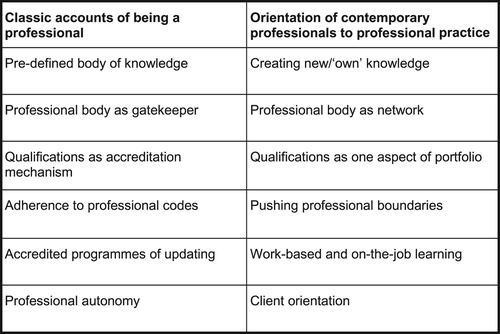It is a pleasure to write this editorial for the Diamond Jubilee of CUA/AUA. I joined the Association in 1975, when it was still the Conference of University Administrators, and was Founding Editor of perspectives from 1996 to 2007. The profession has seen many changes since then, not least the increasing professionalisation and credentialisation of individuals via development programmes and a range of formal qualifications. I undertook a PhD qualification myself in late career and was appointed to an academic post in 2007, so it can be done! Furthermore, there is a sense in which the concept of ‘the administrator’ has been squeezed; in particular those involved in student services-type operations (or in twentieth century speak, ‘registry functions’), have been replaced by digital records of, and online communications with, students over the last 25 years. Record keepers have thereby been replaced by policy-makers and interpreters of increasingly complex regulations, to take account of a diversifying student population and a broader range of individual needs. The old binary of ‘specialists’ and ‘generalists’, the former focused on areas such as human resources, estates and finance, the latter moving around different ‘registry’ functions, is an increasingly false one in the sense that each group should have some cognisance of the other's business. Contemporary professionals need to be aware of, for example, the impact of specialist functions on policy and practice, even if they do not have HR or finance qualifications per se. AUA has always played an important role in rounding out the individual with programmes such as Finance for Generalists. Such specialist knowledge, interpreted for the ‘generalist’, is reflected in this issue in Matthew Andrews’ paper on tuition fees. At the same time, a broad general knowledge is also required in terms of sector history, national policy frameworks, international comparators and governance models, as provided by Alison Johns’ and Michael Shattock's papers. The notion of the ambidextrous professional has never been more relevant in thinking about the identity of professional staff in higher education.
As I have argued elsewhere (Whitchurch Citation2013), the characteristics of being a professional more generally have shifted over time, as reflected in . The concept of the professional these days is thus more open-ended and less boundaried, more outward- and more forward-looking. The term ‘professional’ might be seen as less of an exclusive concept, which does not however mean that standards should not be upheld. One can argue about the precise parameters of being a professional in higher education today, and everyone will have their own, more nuanced picture in relation to their own practice and that of their colleagues, but this framework provides a basis for discussion about, for example, roles, career pathways, professional development and even the grading of posts.
It is also the fact that a significant minority of staff who regard themselves as academics are now appointed on professional contracts, undertaking work such as learning support and the development of online learning. Boundaries are blurring and there has been significant interest in the concept of third space (Whitchurch Citation2013), in which the territories of academic and professional staff mingle. Of course, they have always worked side-by-side in teams, but this has tended not to not to be recognised in formal institutional structures and processes. One issue, therefore, is how to bring the two together in the formal institutional ‘economy’ and achieve institutional recognition for what everyone knows is happening on the ground. A question that I have been asked by several senior university managers (including vice-chancellors) is, ‘can you create third space where none exists’? My answer is that it probably does exist; you just have to recognise and foster it. Nevertheless, it is also up to individuals on the ground to raise awareness of third space activity that is occurring, and make their case known.
As a retrospective issue it is perhaps appropriate that we have papers from two long-serving ‘administrators’, Michael Shattock and Alison Johns. Tempting as it is to be retrospective, it is however more important to look forward to a post-pandemic world in which modes of activity, and those undertaking them, are likely to become increasingly extended and mixed in character. These are likely to include expectations of a holistic student experience, involving considerations of employability, equity and diversity, virtual learning, community outreach and public engagement. AUA will, I am sure, continue to support its members in relation to the acquisition and updating of knowledge and skills to meet twenty-first century demands, the provision of networking opportunities, the exchange of practice, mentoring, and professional development opportunities. Perspectives, as demonstrated in the paper by Joanne Caldwell, Bland Tomkinson and Charlotte Verney, has played, and will continue to play, a vital part in this.
Reference
- Whitchurch, C. 2013. Reconstructing Identities in Higher Education: The Rise of Third Space Professionals. New York: Routledge.

